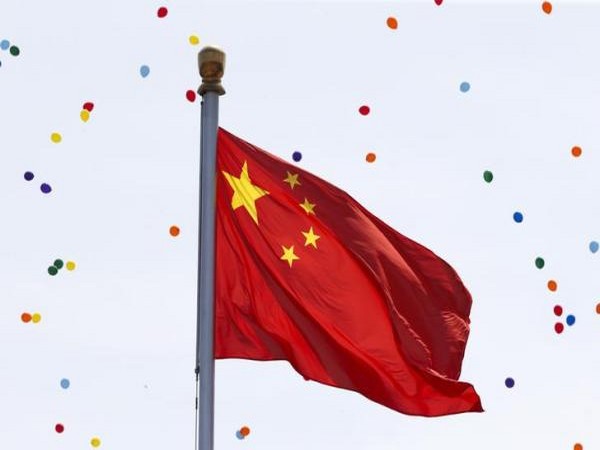China’s Communist Party holds memorial meeting for ex-President Jiang Zemin

- Country:
- China
China’s ruling Communist Party on Tuesday held an hour-long memorial meeting to commemorate the life and times of former Chinese President Jiang Zemin who died on November 30.
Jiang, who was the President and General Secretary of the Chinese Communist Party (CCP) from 1989 to 2002, had leukemia and died of multiple organ failure on November 30 in Shanghai at the age of 96.
His body was flown here by a special flight last week from Shanghai. President Xi Jinping and other leaders received the body in Beijing.
The remains of Jiang were cremated at the Babaoshan Revolutionary Cemetery in western Beijing on Monday.
President Xi and other leaders of the Communist Party of China and the state paid their respects to Jiang at the Chinese PLA General Hospital before escorting his body to the cemetery for cremation.
On Tuesday, Xi and other senior leaders of the CPC and the military and Jiang’s widow, Wang Yeping, attended a nationally televised memorial service for Jiang at the Great Hall of the People in Beijing.
The memorial meeting began with a three-minute-long blowing of sirens all over the country during which the leaders observed silence in front of a giant-size photo of Jiang in the Great Hall of People.
This was followed by a memorial speech by Xi recalling Jiang’s contribution to the development of China and the CPC in the most difficult times in their history.
Xi recalled Jiang’s leadership in steering China through both its internal and external challenges during his 10-year-long tenure in power from 1989 to 2002 and as head of the military until 2004.
Jiang's death comes as China sees some of its most serious protests since the 1989 Tiananmen Square pro-democracy demonstrations, with many protesting against harsh Covid-19 restrictions in the country.
There is a sense of disquiet in Beijing over anti-zero covid protests in which slogans calling for President Xi to step down have been raised.
Significantly, ahead of Jiang’s memorial service, Beijing city authorities announced major relaxation of testing norms under the zero-covid policy.
As per the new announcement on Tuesday, negative nucleic acid test results are no longer required to enter shopping malls, supermarkets, commercial buildings, and residential compounds.
However, 48-hour negative test results are required to enter restaurants, schools, bars, internet cafes, indoor games, nursing homes, welfare facilities, hospitals and medical institutions.
Security has been beefed up in Beijing, Shanghai and several other cities that witnessed anti-zero covid measures, rattling the government as it prepared for Jiang's memorial.
Deaths of top Chinese leaders including former premier Zhou Enlai and former General Secretary of the CPC Hu Yaobang followed mass protests in Tiananmen Square in Beijing.
While the military dispersed mass protests after Zhou died in 1976, hundreds of students were reported to have been killed in the 1989 Tiananmen square protests, demanding democracy and freedom of speech following the death of Hu, the Communist leader who pursued political and economic reforms.
Police in Beijing announced last week that sections of the city will be closed to traffic for Monday and Tuesday as part of preparations for an official memorial service of Jiang.
Roads in much of the city's west would be off-limits to public buses, trains, cars and pedestrians, with only designated vehicles and personnel allowed to use the routes, the announcement said.
The present CPC leadership followed the same pattern for the funeral of Deng Xiaoping, regarded as the country's Paramount Leader for pioneering economic reforms.
Jiang was widely acclaimed for his leadership after Mao Zedong and Deng, the two iconic leaders of the CPC, and credited with leading China out of isolation from the ignominy of the Chinese military crushing the Tiananmen Square pro-democracy protests.
He was also credited with putting China on a sustained path of economic development, laying the foundation for it to emerge as the second-largest economy in the world.
An official letter, which announced Jiang's death on November 30, also called for strengthening the leadership of Xi.
''Jiang's death is an inestimable loss to our Party, our military and the Chinese people of all ethnic groups,'' said the letter published in the official media here.
''We must rally around the CPC Central Committee with Comrade Xi Jinping at its core with greater resolve and purpose, and adhere to the Party's basic theory, basic line, and basic policy,'' it said.
''We must develop a deep understanding of the decisive significance of establishing Comrade Xi Jinping's core position on the Party Central Committee and in the Party as a whole and establishing the guiding role of Xi Jinping Thought on Socialism with Chinese Characteristics for a New Era,'' the letter said.
Xi, 69, was re-elected for an unprecedented third consecutive term by a once-in-a-five-year Congress of the CPC in October this year.
All of Xi's predecessors, including Jiang, retired after two five-year terms, though Jiang continued as head of the military for two years after he relinquished the Presidency in 2002.
In 13 years as party general secretary, China's most powerful post, Jiang guided the country's rise to economic power by welcoming capitalists into the ruling party and pulling in foreign investment after China joined the WTO.
China passed Germany and then Japan to become the second-largest economy after the United States.
Jiang gave up his last official title in 2004 but remained a force behind the scenes in the wrangling that led to the rise of current President Xi, who took power in 2012.
(This story has not been edited by Devdiscourse staff and is auto-generated from a syndicated feed.)
ALSO READ
Warner Bros Discovery at Crossroads: Paramount's Takeover vs. Netflix's Bid
Warner Bros. Rejects Paramount's Hostile Takeover Bid; Netflix Deal in Spotlight
Entertainment World Shaken: Netflix's FIFA Game, Murder Charges Against Reiner's Son, and Warner Bros' Rejection of Paramount
Warner Bros Rejects Paramount's Illusory Bid Amidst Fierce Acquisition Battle
Warner Bros Rejects Paramount's $108.4 Billion Bid Amid Financing Concerns










